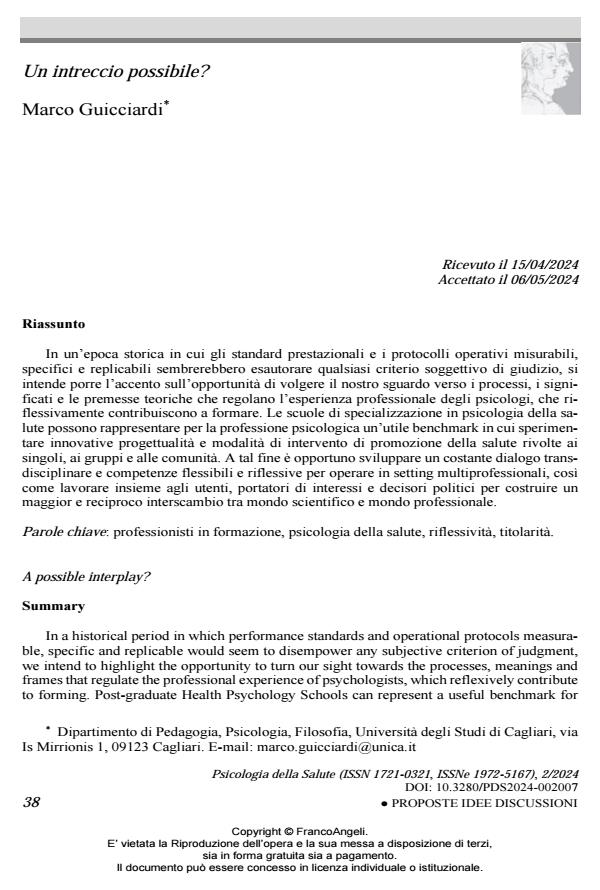A possible interplay?
Journal title PSICOLOGIA DELLA SALUTE
Author/s Marco Guicciardi
Publishing Year 2024 Issue 2024/2
Language Italian Pages 5 P. 38-42 File size 179 KB
DOI 10.3280/PDS2024-002007
DOI is like a bar code for intellectual property: to have more infomation
click here
Below, you can see the article first page
If you want to buy this article in PDF format, you can do it, following the instructions to buy download credits

FrancoAngeli is member of Publishers International Linking Association, Inc (PILA), a not-for-profit association which run the CrossRef service enabling links to and from online scholarly content.
In a historical period in which performance standards and operational protocols measura-ble, specific and replicable would seem to disempower any subjective criterion of judgment, we intend to highlight the opportunity to turn our sight towards the processes, meanings and frames that regulate the professional experience of psychologists, which reflexively contribute to forming. Post-graduate Health Psychology Schools can represent a useful benchmark for psychologists in which to experiment with innovative health promotion projects and interven-tion methods aimed at individuals, groups, and communities. To this purpose, transdiscipli-nary dialogue, and flexible skills to operate in multi-professional settings must be developed as well as to work together with the users, stakeholders and policy makers and other colleagues to build a greater and mutual exchange between the scientific and the professional world.
Keywords: practitioners in training, health psychology, reflexivity, psychological ownership.
Marco Guicciardi, Un intreccio possibile? in "PSICOLOGIA DELLA SALUTE" 2/2024, pp 38-42, DOI: 10.3280/PDS2024-002007